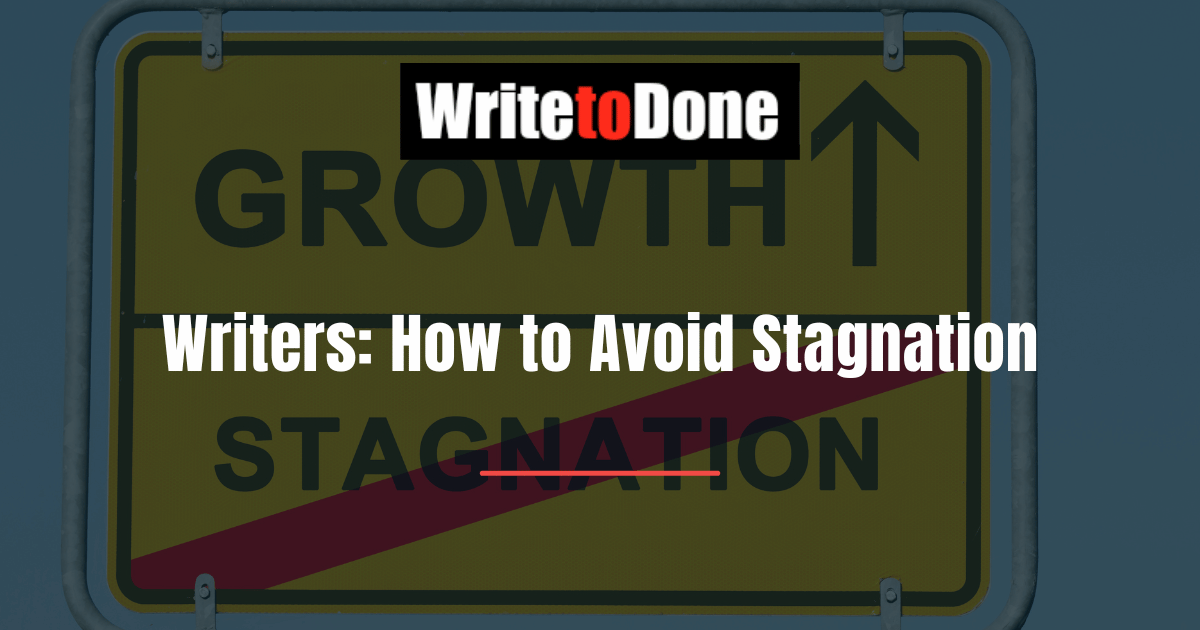A Guest Post by Meredith Resnick of The Writer’s [Inner] Journey
When my kids were in middle school they got a lot of make-work for homework and classwork, stuff that kept them very busy but that steered them away from real creativity and by proxy, real learning. This make-work gave the illusion that students were busy and oh so productive. Wrong. What they were really doing was chasing their tail—in other words: stagnating.
Being busy, compulsively busy even with journaling and writing and revising does not always spell productivity. As far as I’m concerned it’s a form of stagnation which is worse than writer’s block. Why? Because you have the illusion that you’re being productive—just like my kids with all that make-work in middle school.
This is my story about how to avoid stagnation. Actually, it is a post about growth.
I love getting a piece of writing to work. And by work I mean flow—which actually implies that I’ve stepped back and let the words—the work—happen. My fear, on the other hand, would like to take credit for working a piece to death and, in the process, grinding my creativity to pieces. It’s true. I try not to let my fear do my writing for me anymore. Sometimes I succumb. It’s usually the result of comparing my work to someone else’s. I would have hoped to have grown out of that by now but, oh well. If I share my experience with you it will help me, too. So, here goes:
My cautionary tale
I was the kind of writer that went out and found the right words. Really dug for them. I could spend hours researching a term. There is a place for this type of finishing-touch treatment and—lo and behold—it comes somewhere in the final stages of editing. In other words, it happens best, for me anyway, at the end, after the bulk of writing (story finding) is complete.
If I go out and dig for words too quickly, or scour my brain or dictionary for the perfect metaphor before I’ve found the real story I’m writing, I go insane (and eat too much candy). Once I’m in the insane place I keep trying this approach. Over and over. The insanity comes, not only in the seeking of the perfect words but after I’ve stepped back and realized the words I’ve chosen don’t fit or mean anything to me. If you’ve ever gone on a binge of any kind, you know what I mean.
The holding-on problem
But because I worked so hard and dug so deep for a string (gossamer) of beautiful (pulchritudinous) words, I’m likely to not want to let go of them—ever. I start trying to find ways to keep a certain sentence, to mold the story around a turn of phrase. I often fall into the trap of overdoing the flow part.
Well, yeah.
That’s the flip side.
It’s what happens if every writing session is about letting my mind and pen just go wherever they want, all my work turns into a disjointed slew that requires hours of dissection. So instead of finding the perfect words out there in the dictionary, I’m on a treasure hunt across 10 new journals I’ve penned. I may look busy. But I’m spinning (in place).
Same stagnation, different disguise.
Granted, I’ll unearth a few gems waiting to be polished (or maybe they come ready to use). But the time I spend untangling the jungle of roots (beginning of ideas) instead of growing those ideas is more stagnation. I waste more time and energy trying to surgically extract the phrases that work from the stuff surrounding it. I get bogged down, pent up and tired. The joy of sitting down to accomplish turns into make-work that keeps me from moving forward. For a writer, this is stagnation.
So what to do? Here’s what I do:
Be nice (to myself). Understand that when I sit down to write I’m treading two paths: I’m simultaneously finding the story and relaying the story with language that moves the story along. In the beginning and middle, I keep my eyes on the finding the story, not on finding the words.
Listen (to myself). I resist the urge to be seduced by teachers and books and workshops and websites that tell me to focus too soon on technique. (My ego likes those.) Instead, I pay attention to teachers who say simple things like: “Keep going.”
Trust the process. I don’t get bogged down in “the language” and “the turn of phrase” and “the big brush strokes” and any number of other writer catch phrases I may have heard or read about. That comes later. And later always comes as long as I dedicate myself to the process in the correct order: Write first, edit (word find, cut, revise, finesse) second.
Remember. Understand that I do have a story to tell. As do we all.
Meredith Resnick’s personal essays have been published in Newsweek, Los Angeles TImes, PsychologyToday.com, JAMA, Culinate, Santa Monica Review and many more. Visit her at The Writer’s [Inner] Journey, a finalist in the 10 Top Blogs for Writers Contest 2011/12, Meredith is mesmerized by all facets of the creative process.
















